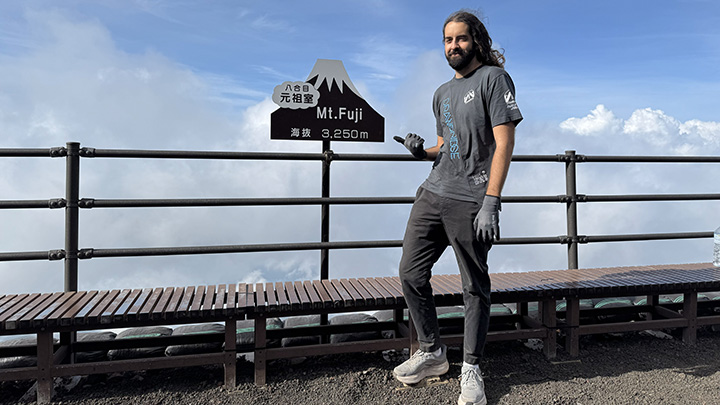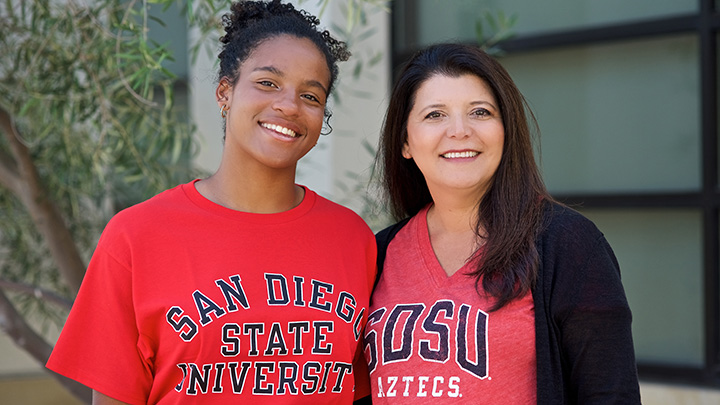Zahn Center Boosts Start-ups
Student companies will have the opportunity to participate in an on-campus business incubator.

Upon completion of their formal education, many San Diego State University engineering students go on to work at such companies as Qualcomm Inc. and Cubic Corp.
Irwin Zahn would rather see those students start companies like Qualcomm and Cubic.
That’s why Zahn has given the SDSU College of Engineering $700,000 to create an on-campus “incubator” for promising young entrepreneurs to turn their ideas into real companies. The Zahn Center will guide teams of engineering, technology and business students from concept to business plan to market.
San Diego's entrepreneurial spirit
“San Diego was built by entrepreneurial spirit, by people like Irwin Zahn,” said SDSU President Elliot Hirshman.
“Our students need support to turn their brilliant ideas into successful businesses,” Hirshman continued. “The Zahn Center will be the place where this happens; a place where ideas become companies which, in turn, drive our economic recovery forward. In this respect, Irwin's gift will support the entire region, as well as the students, faculty and staff of San Diego State University.”
The Zahn Center demonstrates how Fueling Potential leads to success, a key initiative of The Campaign for SDSU. Whether it’s the university’s Guardian scholars, its student athletes or its Honors Program students, scholarships provide opportunities for students to succeed. Learn more about SDSU’s efforts to fuel potential how you can contribute.
Richard Kerr, a longtime entrepreneur with SDSU degrees in physics and electrical engineering, will direct the Zahn Center. He will mentor the fledgling entrepreneurs and connect them with venture capitalists.
“There are so many creative people that, if just given an opportunity and a little guidance, will change the world,” Zahn said. “We want to make that happen right here in San Diego, at SDSU.”
Zahn is a member of the SDSU College of Engineering Dean’s Advisory Board and a longtime San Diego resident. The company he founded, Autosplice Inc., has employed dozens of SDSU engineering alumni.
Zahn’s initial gift will fund the operational costs of the center, which will become a working office for several start-up companies. Kerr will guide students through:
- developing a business plan;
- obtaining patents;
- building collateral like websites and e-mail addresses;
- and creating prototypes.
The center will also work closely with the College of Business Administration to develop long-term campuswide goals.
The Zahn Incubator Challenge
Those who succeed in the Zahn Incubator Challenge will be accepted into the new program. Three winning teams, which must include at least one current SDSU student, will split the $25,000 prize money and be among the first to enter the Zahn Center.
Industry experts will judge entries submitted earlier this month. Five finalists will proceed to the next round of judging, which will take place in March, during SDSU’s Entrepreneurial Management Center’s Venture Challenge Competition. The concurrent events will give finalists exposure to potential mentors, investors and contacts. Awards will be announced on March 17.
A viable option for venture funding
Once invited into the Zahn Center, teams will have 18 to 24 months to get their companies off the ground. Already, student start-ups eager to enter the Zahn Center include a prosthetics team with a new market approach and a novel green energy team.
“Like the real world, their companies have to get to a point where they are a viable option for venture funding,” Kerr said. “And when they get to that point, we will introduce them to venture capitalists and gently push them out into the real world.”
Kerr will also tap SDSU’s College of Business Administration and Entrepreneurial Management Center to find business students interested in joining the start-up ventures and to provide as much business innovation as the engineering students do technical innovation.
“So often, great ideas die on the vine because young people don’t have the capital or contacts to bring them to fruition,” said David Hayhurst, dean of SDSU’s College of Engineering. “This exciting new facility will give students a chance to develop their ideas at the earliest possible stage.”



